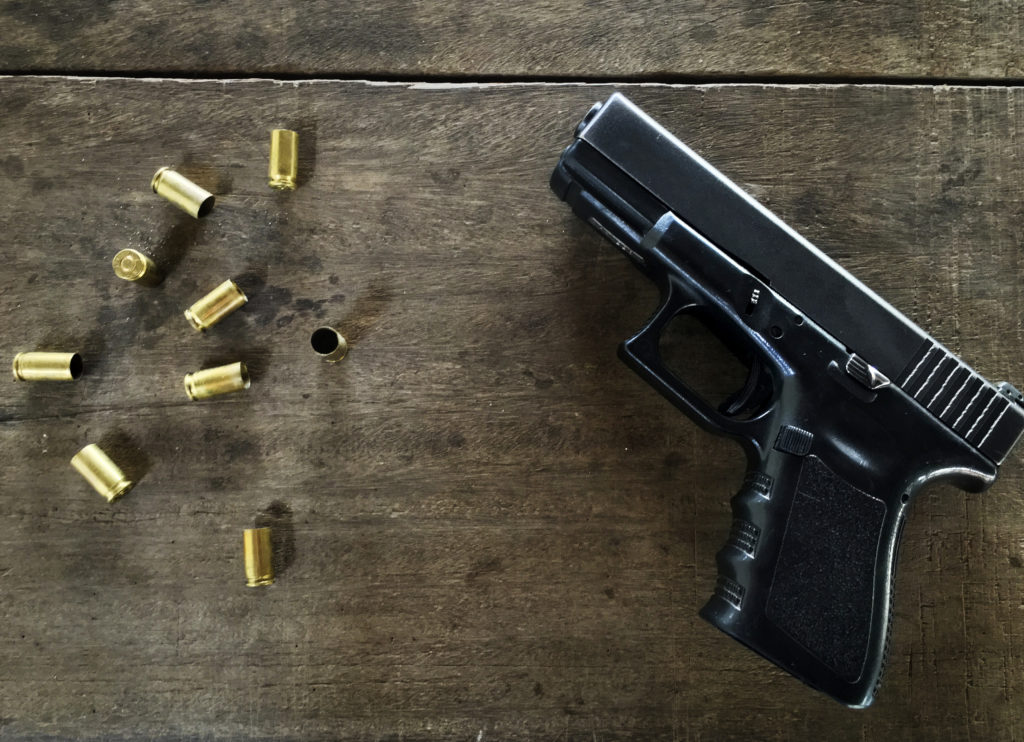
Article by: Daniel A. Levy, Esq.
Often in my Criminal Practice, and occasionally in my Family Practice, I see lots in incidents involving guns. But especially today, people ask more and more frequently whether police can seize your firearms if there was no crime committed. And what about situations where there was an incident, but no gun was involved? The short answer is yes, police can seize firearms and other weapons without a crime being committed. But there needs to be an order by a judge, and it’s easier for a judge to order this than most people would think.
There are two scenarios where guns can be taken, without a crime occurring. The most common situation actually involves Family Court, believe it or not. And the way that it works is as follows: Someone files for a temporary restraining order and alleges that they were the victim of domestic violence. Now, this is a civil matter, not a criminal matter. And there are many things that can be considered “domestic violence” but are not in the realm of violent crime (for example, harassment, cyberbullying, lewd behavior, etc.). As long as there is probable cause to believe that the applicant is a protected person under the statute and that they were the victim of an act of domestic violence, the judge will order a temporary restraining order (you can read much more about restraining order cases by clicking here). Part of the questions that the victim must answer is whether the defendant has any weapons. If they do, the judge will order that police confiscate those weapons, regardless of whether they were involved in the alleged domestic incident. So for example, a person could yell and scream nasty things at their partner, and a few days later police may have in hand a warrant ordering them to seize firearms that are legally owned and safely stored in a safe. The weapons would remain with the prosecutor’s office unless they agree to release them, or a judge orders it, and neither will happen if the temporary restraining order is converted to a final restraining order after a trial.
The second scenario is brand new and is largely untested in the courts. The Extreme Risk Protective Order Act of 2018 (ERPO) was recently signed into law in New Jersey, in the wake of the Parkland shooting. This law, known as a “red flag law” is designed to allow law enforcement to confiscate a gun before someone has a chance to carry out a violent crime. Under the ERPO, police, family members, and household members to petition the courts and seek an order to remove firearms from a person. The ERPO system functions a lot like a restraining order. The petitioner needs to show that there is probable cause to believe that the person poses a risk of using their guns to carry out a violent crime. If the judge agrees that this is the case, the court will order the guns confiscated, temporarily, until a hearing occurs. The hearing should be scheduled within 10 days, per the ERPO, and the petitioner would have to convince the court that the individual poses a risk. If they succeed, the court will make the temporary confiscation order permanent and the person will appear in an online registry. However, the order could be terminated if the court agrees that there is not enough evidence to find that the person is a risk or if the person presents proof showing that they are no longer a risk (for example, if they were originally at risk due to mental health issues, which have since been addressed appropriately).
In either case, a person’s 2nd Amendment rights are at risk. Therefore, if a a gun-owner is served with a temporary restraining order or an order under the Extreme Risk Protective Order Act, they should contact an attorney right away.


